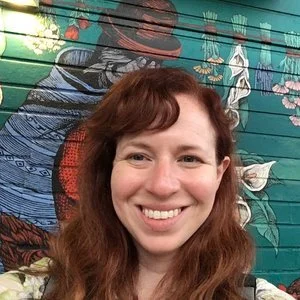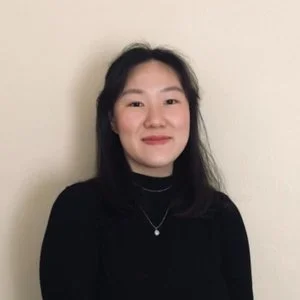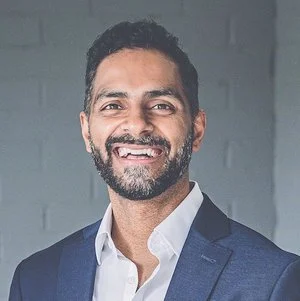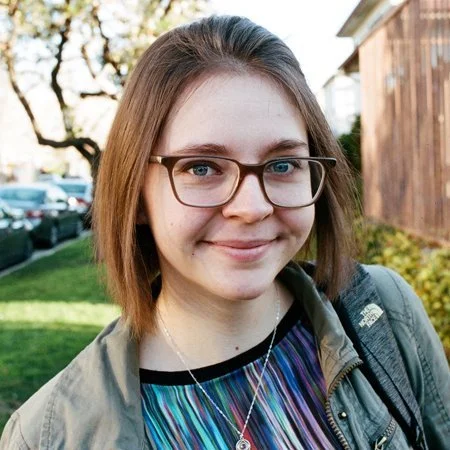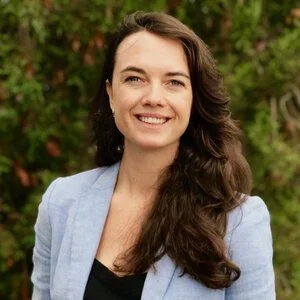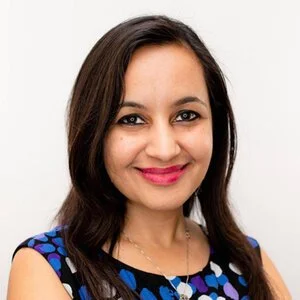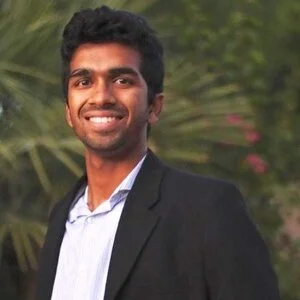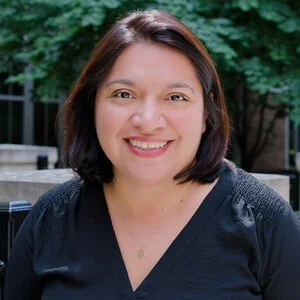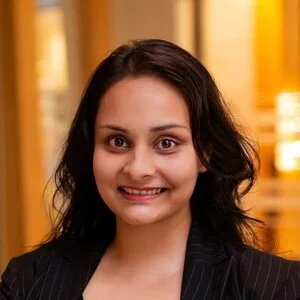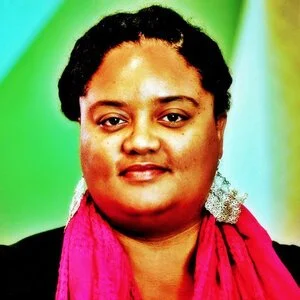Equity + Ethics in Data Workshop: Nonprofit Edition
Our December cohort was fabulous – sign up here to be notified of future workshops.
Do you work at the intersection of the data and nonprofit fields? LA Tech4Good is convening groups of data practitioners to collaboratively learn about and work toward solutions to issues of equity and ethics in data analytics, data science, machine learning, algorithms, artificial intelligence, and technology tools across nonprofits. The goal is for you, the data practitioner, to apply learnings from this solution-oriented workshop series to your specific project, in order to foster a more equitable tech and data ecosystem. In the past, we’ve offered this workshop to participants across all fields and sectors – this time, we are excited to offer a cohort specifically designed for the nonprofit sector in partnership with ParsonsTKO.
How it works
Prior to each week’s session, participants are asked to read and watch a curated selection of articles and videos related to the topic. During each workshop session, we will discuss the latest research and case studies, conduct group exercises to apply emerging frameworks to our projects, and discuss broader implications for our work at the intersection of the data and nonprofit fields. Sessions will be facilitated by our program lead, Rachel Whaley. Here’s what we’ll cover:
• Session 1: Equity in Data Projects. We will cover approaches for defining fairness within a specific project context, and how equity impacts the creation and use of data through collection and categorization.
• Session 2: Data Ethics. We will discuss various types of bias and their impacts, how power dynamics are reflected in data and organizational practices, and practical methods to embed ethical practices into data projects.
• Session 3: Impact of Algorithms. In session 3, we will discuss the assumptions and choices that shape the design and implementation of algorithms, applying our learnings about equity and ethics to understand the impact of machine learning and AI on stakeholders and communities.
After the workshop, you will become a member of our Data Equity Community of Practice, an active group of past workshop participants offering ongoing opportunities for learning, support, and connection.
Who is this for?
Professionals working in a data-related role in the nonprofit world (or a nonprofit-related role in the data world!). We define this broadly – if you work with data, join us! Whether you're a data team leader, a data engineer, a data scientist, a data-informed decision-maker, a database administrator, or just getting started as a data analyst, you play a critical role in fighting for equity in data. Past participants have joined us from across the US, from organizations large and small, including leaders and nonprofit staff, from all different stages of data projects.
LA Tech4Good is committed to an inclusive environment, and our goal is a diverse cohort that includes underrepresented groups and those with non-traditional backgrounds in data.
To get the most out of the workshop, participants should have substantive experience with both data projects and the nonprofit sector (can include professional, academic, and/or volunteer-based experience). Participants should be actively working on a data project, be interested in applying new learnings to their current project, and open to sharing their experiences and insights in a cohort-based participatory learning setting.
What's in it for you?
• Professional development via actionable learnings that you can immediately apply to increasing equity and promoting ethics in your data projects.
• Networking with other equity-minded data professionals in the nonprofit world.
• Participants will be invited to write a guest post for our blog on a topic related to the workshop.
When and where
Participants should plan to complete an hour of pre-work prior to each 90-minute session. Sessions are held virtually; plus we have an active Slack group for connecting and sharing resources
Cost
$195 includes all sessions and materials, and supports our continued work around data justice. We encourage you to finance the course through your employer’s professional development budget if that is available to you. Our reduced rate ($95) is available to participants from small nonprofits and others who need them. Our community rate ($20) is available to participants from grassroots organizations and communities who have been impacted by injustices or consequences from Covid.
Our partner for this workshop
ParsonsTKO builds Engagement Architectures for mission-driven organizations empowering continuous and effective audience engagement.
Our guest speakers
Audrey Boguchwal is currently a group product manager at Autodesk in San Francisco, CA, working on document management and collaboration products for the architectural, engineering and construction industries. Before Autodesk, she worked as a senior product manager at Sama, a social impact AI company, for 5 years. She has also guided teams of designers and engineers at HUGE Inc. and NBCUniversal, and monitored user analytics at The Wall Street Journal.
Chelsie Lui is an Analyst with ParsonsTKO, leading the company's flagship research initiative, the Data Innovation Studio. In her work with the Studio, she conducts interdisciplinary research on the data experiences of mission-driven organizations. Chelsie is also the Co-Founder and Chief Communications Officer of Activism Always and a recent graduate of California Polytechnic State University – San Luis Obispo, with a B.A. in Communication Studies.
Ganesh Padmanabhan is the Founder of Stories in AI, an edu-tainment venture, and consults for several Fortune 500 organizations on Data & AI strategy and business models. He is an investor and advisor for companies including Credo AI, OpsLab, Advanced Scanners, SuperWorld, Piggy Capital, Laureti Motor Corporation. He previous co-founded and scaled Molecula Corp, a data management company, and led growth and commercial scaling at CognitiveScale, Inc, an Enterprise AI company. Prior to that he spent a 15 year career spanning Dell Technologies and Intel Corp.
Workshop facilitators
Rachel Whaley serves as the data equity program manager for LA Tech4Good. Across her experience with nonprofits, higher ed, and public and private sectors, she believes data can be a force for good when handled responsibly. She holds degrees in public policy and computer science from the University of Chicago.
Eva Sachar is a volunteer at LA Tech4Good. She is passionate about our social responsibility to develop AI that is both ethical and equitable and has endeavored to apply best practices in AI Ethics from academic research to both the public service and healthtech industries. She is currently working towards an MS in Statistics & Data Science at Yale University and received a BS from Tufts University with double majors in Applied Mathematics and Computational Economics. Eva and Rachel recently presented a workshop on Actualizing Data Equity + AI Ethics at A Better Tech conference hosted by NYU.
Our past guest speakers
Tina M. Park is the Methods for Inclusion Research Fellow at Partnership for AI, developing evidence-based methodologies for incorporating a more diverse range of stakeholders in the design and development of artificial intelligence. Prior to joining PAI, Tina has led efforts to cultivate supportive intellectual spaces for scholars of color at Brown University and nationwide. Her scholarship has focused on the examination of research designs and theoretical frameworks used by sociologists to study race and racism. She also helped lead an interdisciplinary, mixed methods pilot project on the educational experiences of undocumented medical and law students in the United States. Tina received a Ph.D. in Sociology from Brown University, a Master’s in Urban Planning from New York University, and a B.A. in Political Science (with minors in Chicana/o Studies and Public Policy) from UCLA.
Sarah W. Newman is Director of Art & Education at metaLAB at Harvard, and a Fellow at the Berkman Klein Center for Internet & Society. As a researcher expressing ideas through installation art, her work engages with technology’s role in human experience. In addition to her art practice, she is also a facilitator and educator, and leads workshops that use creative materials to address interdisciplinary research problems. She is a Co-Founder and Research Lead of the Data Nutrition Project, which creates “nutrition labels” for datasets to help mitigate issues of bias in AI that arise from underlying problematic data. Newman holds degrees in Philosophy and Imaging Arts, has exhibited work in New York, San Francisco, Berlin, and London, and has held artist residencies in Germany, Sweden, and Italy. Newman is a 2017 AI Grant Fellow, a 2018 and 2021 Assembly Fellow, a 2019 Rockefeller AI Bellagio Resident, and a Fellow at the Royal Society of Art.
Genevieve Smith is the Associate Director at the Berkeley Haas Center for Equity, Gender & Leadership (EGAL). She directs and executes on strategy to advance equity and inclusion in industry, and works to foster "equity fluency" as a key leadership skill for future business leaders. A current area of focus is on mitigating bias in artificial intelligence. She is the Lead Author of EGAL’s playbook for business leaders on Mitigating Bias in Artificial Intelligence. For over a decade, Genevieve has conducted research and advised Fortune 500 companies on gender equity, women’s economic empowerment and inclusive technology. Prior to working at Haas, Genevieve worked for the International Center for Research on Women, UN Women and the UN Foundation’s Clean Cooking Alliance.
Shailvi Wakhlu is the Sr. Director of Data at Strava, where she leads a large team of product analysts and machine learning engineers to enable data-informed product improvements in support of Strava Athletes. In the past, she worked at Salesforce, Fitbit, and multiple other data-rich companies, in addition to previously running her own company. As a data leader, she focuses on harnessing the power of data to build great products, clarify strategic direction, and improve business processes. She is also a passionate mentor in the community and spends her spare time volunteering for programs that further STEM education for minorities.
Abhik Chowdhury self identifies as a humanitarian technologist. A passionate quantified selfer and a bit of a philosophy nerd, he sees our personal data as a bridge for us to be more empathetic towards ourselves and others. A long time hardware hacker Abhik likes to build his own wearable systems for longterm data collection. Now as a PhD in computer science at Arizona State University and a part of the NRT Citizen-Centered Smart Cities and Smart Living project there, he's excited to apply machine learning to his experience in wearables and craft digital systems that can truly improve the human condition.
Patricia Garcia is Assistant Professor in the School of Information at the University of Michigan. She conducts qualitative research on the complex relationship between race, gender, and technology. Her work examines how harmful data practices produce and perpetuate structural inequities that are compounded by the intersections of one’s identities. Drawing on the Feminist Data Manifest-No, she will discuss how to mobilize the concept of “critical refusal” as a powerful tool for imagining and enacting more equitable data futures.
Ali Alkhatib is a Research Fellow at the Center for Applied Data Ethics at the University of San Francisco. His work draws theoretical frameworks from the social sciences to make sense of technical systems and ecologies from the perspectives of people who experience them. Ali studied Anthropology and Informatics at UC Irvine, and Computer Science at Stanford University as a PhD student.
Dr. Sreyoshi Bhaduri is an Engineering Educator and People Researcher who works on improving strategy, analytics, and inclusion for the 21st century workforce and future of work. Sreyoshi manages Global People Research at McGraw Hill where she leads research leveraging employee data from across 45 countries to generate data-driven insights for policy decisions impacting organizational effectiveness, culture, and talent. She is passionate about employing innovative, ethical, and inclusive mixed-methods research approaches to uncovering and communicating data-driven insights.
Marie Smith is Chief Information Officer of Data 360 Solutions. Her ambitious entrepreneurial spirit has led her to be a founding contributor in her 20 year career to nearly 50 media, tech and wellness companies and projects which have contributed to over $100 million in transactions. After bringing her talents to work at Warner Brothers in their Consumer Products division, Marie began developing her skills in the areas of advertising, sales, dynamic and automated operations, and marketing, working with companies such as Computer Associates, Electronic Arts, Viewpoint Datalabs, Digital Domain, Saatchi & Saatchi and the Nobel Foundation.
Scholarships
Would you like to sponsor participants or the workshop as a whole? Email karen@latech4good.org to discuss! Thanks to these organizations who have provided scholarships to past workshops.



